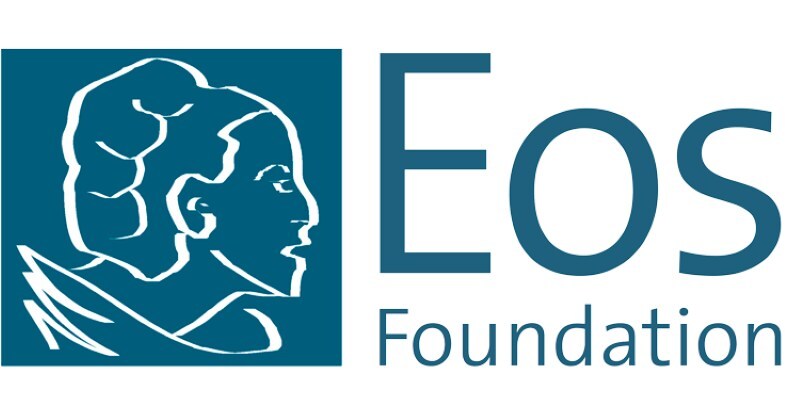NEW REPORT: The Breakfast Gap - Report Highlights How Massachusetts Schools Could Feed 303,000 More Students Breakfast Each Day with Universal Free School Meals, Bringing in an Extra $73 Million in Federal Dollars
1 hour ago
Eos Foundation Calls for Urgent Expansion of Breakfast in the Classroom as Hunger Spikes
BOSTON, Nov. 19, 2025 /PRNewswire/ -- A comprehensive new statewide analysis released by the Eos Foundation revealed an immense opportunity for Massachusetts to end hunger in K-12 public schools by instituting Breakfast in the Classroom (BIC).
Ending Hunger in Our Schools with Breakfast in the Classroom finds that while 595,000 Massachusetts students participate in school lunch each day, only 292,000 eat breakfast, leaving a "breakfast gap" of 303,000 students. In 2023, Massachusetts passed groundbreaking legislation, School Meals for All, guaranteeing free school meals for all K-12 students, which presents a generational opportunity to reduce childhood hunger.
"The Healey-Driscoll Administration and the Massachusetts legislature had the foresight to make school meals free for all students. However, when breakfast is served in the cafeteria before the bell, participation rates are low," said Andrea Silbert, President of the Eos Foundation. "Feeding kids breakfast is absolutely critical, especially for low-income students who get up to 50% of their daily calories from school meals. We know exactly what works to bridge the breakfast gap — Breakfast in the Classroom — and we've seen it succeed in every type of school. We urge districts to implement BIC so that every child starts the day ready to learn."
"We want our students to be able to focus on learning, not on where their next meal is coming from. That's why we made school breakfast and lunch free for all students. But we know there is more work to do to encourage more students to eat breakfast," said Governor Maura Healey. "I'm grateful to the Eos Foundation for their efforts to expand access to school breakfast while also supporting local farmers, creating jobs, and keeping our resources in our neighborhoods."
Of particular concern, the report shows declines in breakfast participation in high-poverty schools — defined as those where at least 60% of students qualify for free or reduced-price meals — which have a legal requirement to serve breakfast after the bell. Participation in these schools has dropped from 58% in 2019 to just 48% in 2025.
High-Poverty Schools Are Leaving $73 Million in Federal Funds on the Table
If every high-poverty school reached 80% breakfast participation — a threshold many met in prior years — the state would draw down an estimated $73 million more annually in federal USDA reimbursements. At a time when districts face soaring food and labor costs, this revenue is currently "forfeited" by low participation, the report notes.
Breakfast in the Classroom Proven to Reverse Decline — Springfield Sets the Standard
The report highlights Breakfast in the Classroom as the most effective strategy to close the breakfast gap. When served in the cafeteria before the bell, only 36% of students eat breakfast; served in the classroom after the bell, participation jumps to 71%.
Springfield Public Schools offers a powerful example. After adopting BIC districtwide — including in high schools — breakfast participation soared from 44% in 2015 to 84% in 2025. With the highest breakfast participation in the state, Springfield uses increased federal reimbursements to fund its 62,000-square-foot Culinary Center. The center serves over 19,000 breakfasts each day, more than any other district, and over 60% of meals are scratch cooked.
"It was wonderful to be in Springfield to see the impact of Breakfast in the Classroom firsthand. Springfield is a model for meeting children where they are, sustaining high breakfast participation, and incorporating local products with meals made from scratch," said Secretary of Education Dr. Patrick Tutwiler. "Every child I met with that day was happy, engaged, and enjoyed their meal. We will continue to work to ensure every student across Massachusetts has an opportunity to begin their days nourished and ready to learn."
Eos Offers up to $20,000 Grants to Schools to Implement BIC
To accelerate progress, Eos is offering up to $20,000 per school to transition from cafeteria breakfast to Breakfast in the Classroom.
A Call to Action
The report lays out clear steps for superintendents, principals, teachers, and legislators:
About the Eos Foundation
The Eos Foundation is a private foundation focused on systemic solutions to end hunger in Massachusetts. Since 2013, Eos has supported hundreds of schools with BIC start-up grants and annually recognizes schools with 80%+ breakfast participation through its Healthy Start Awards.
Media Contact:Neeve Prendergast[email protected]617.820.8594
SOURCE Eos Foundation
...Read the fullstory
It's better on the More. News app
✅ It’s fast
✅ It’s easy to use
✅ It’s free









